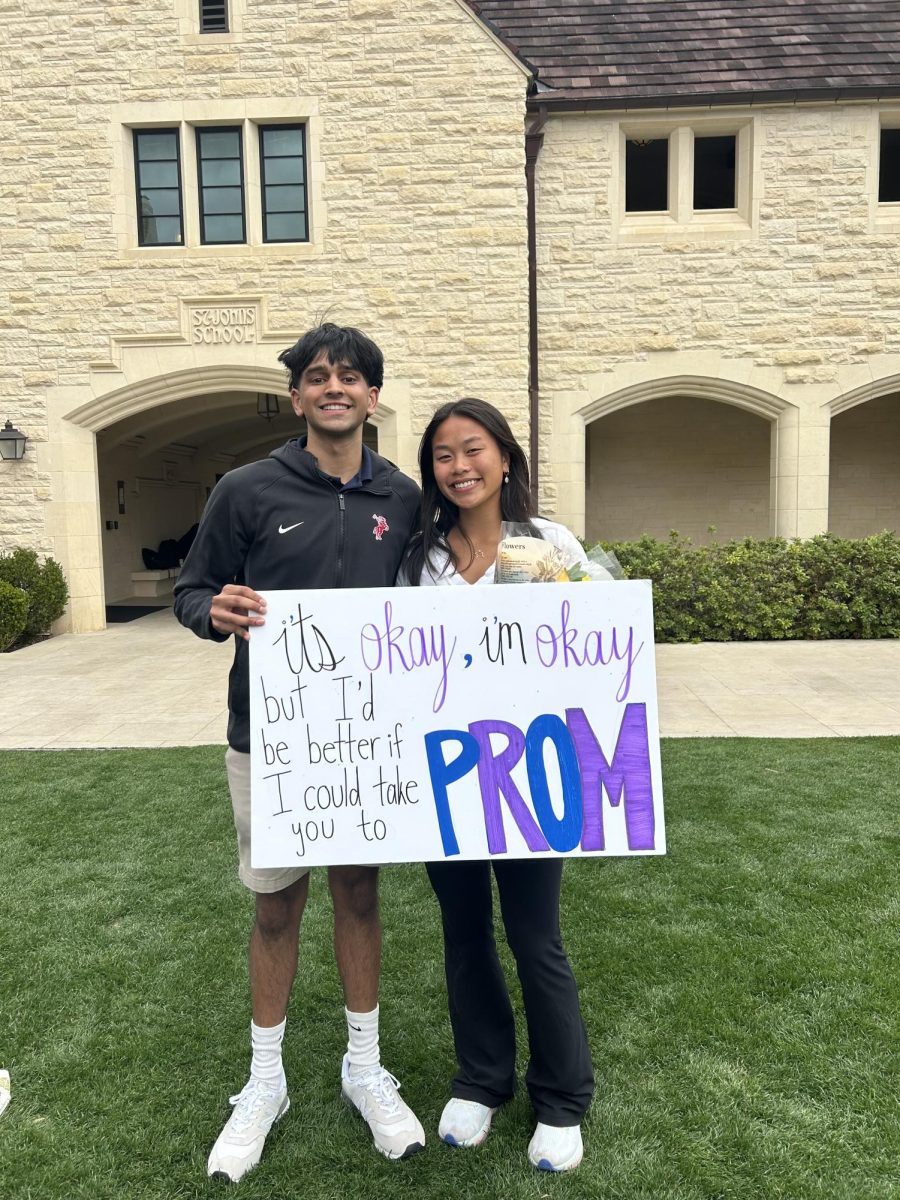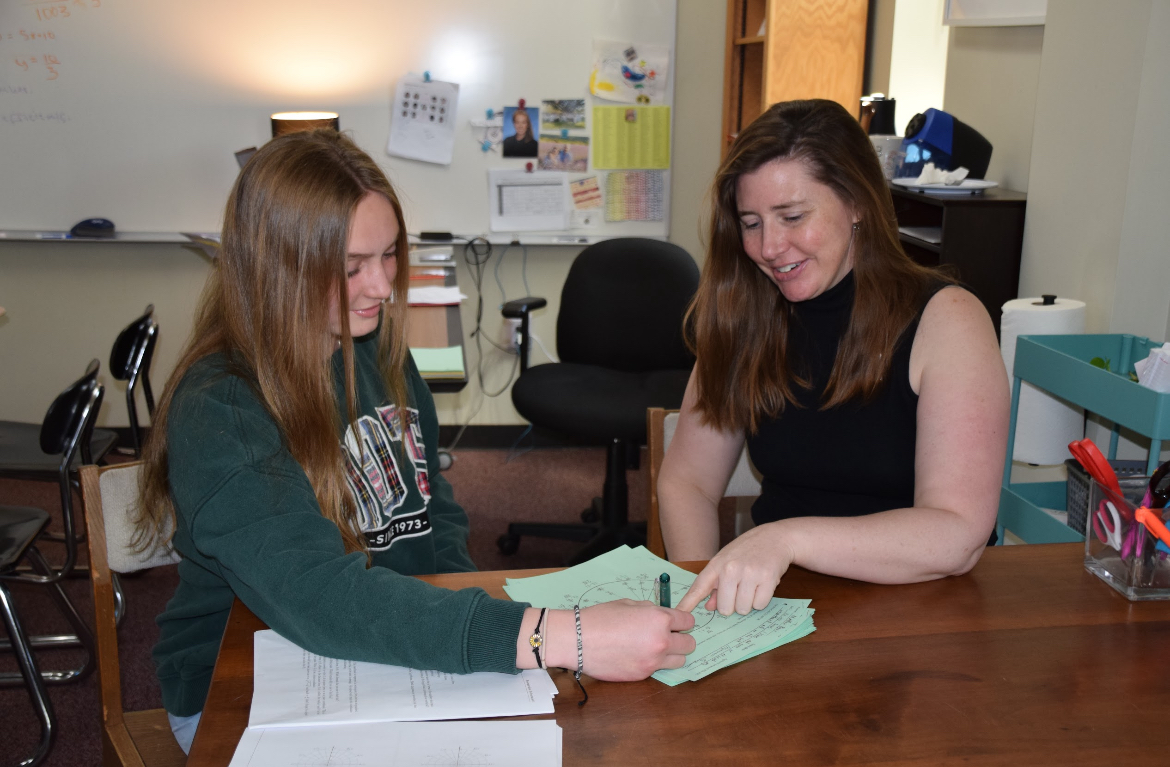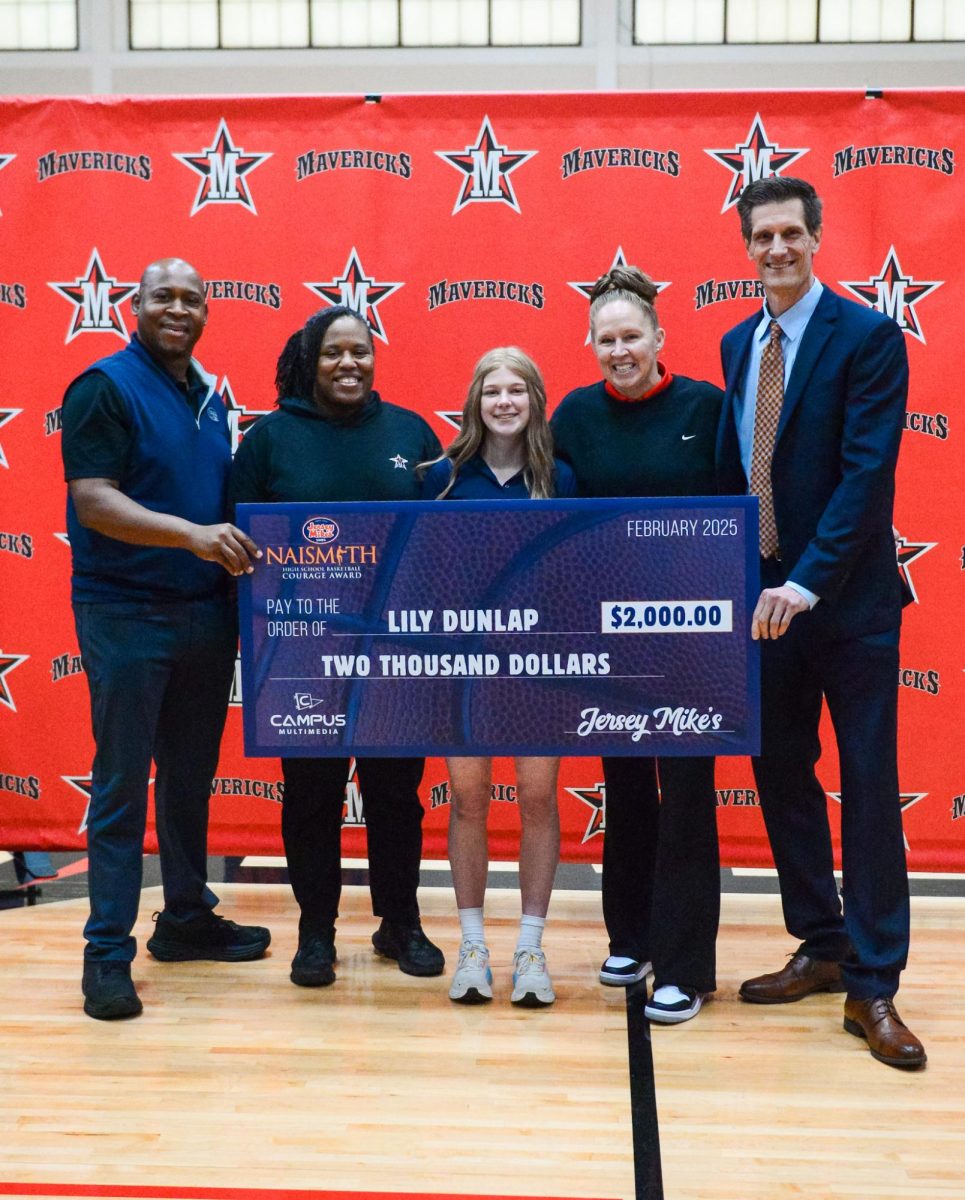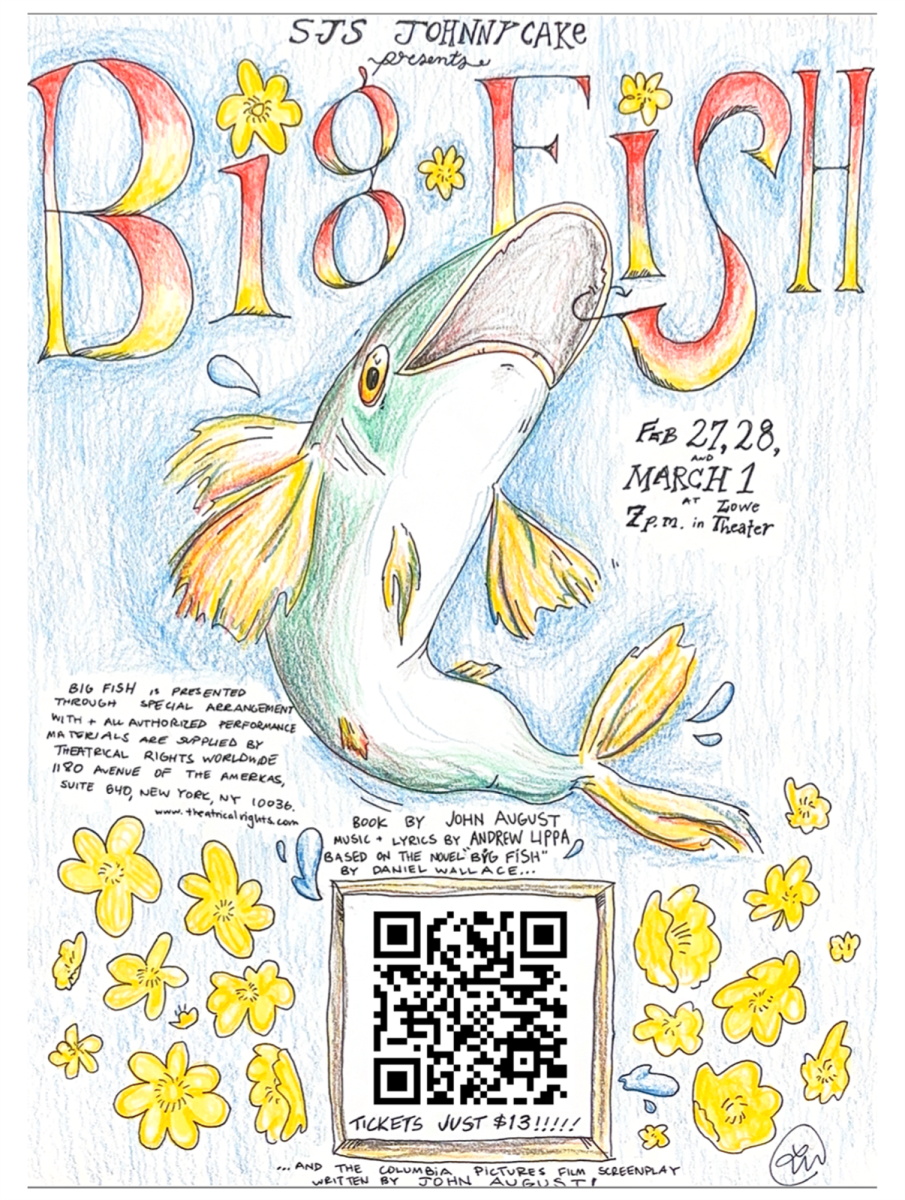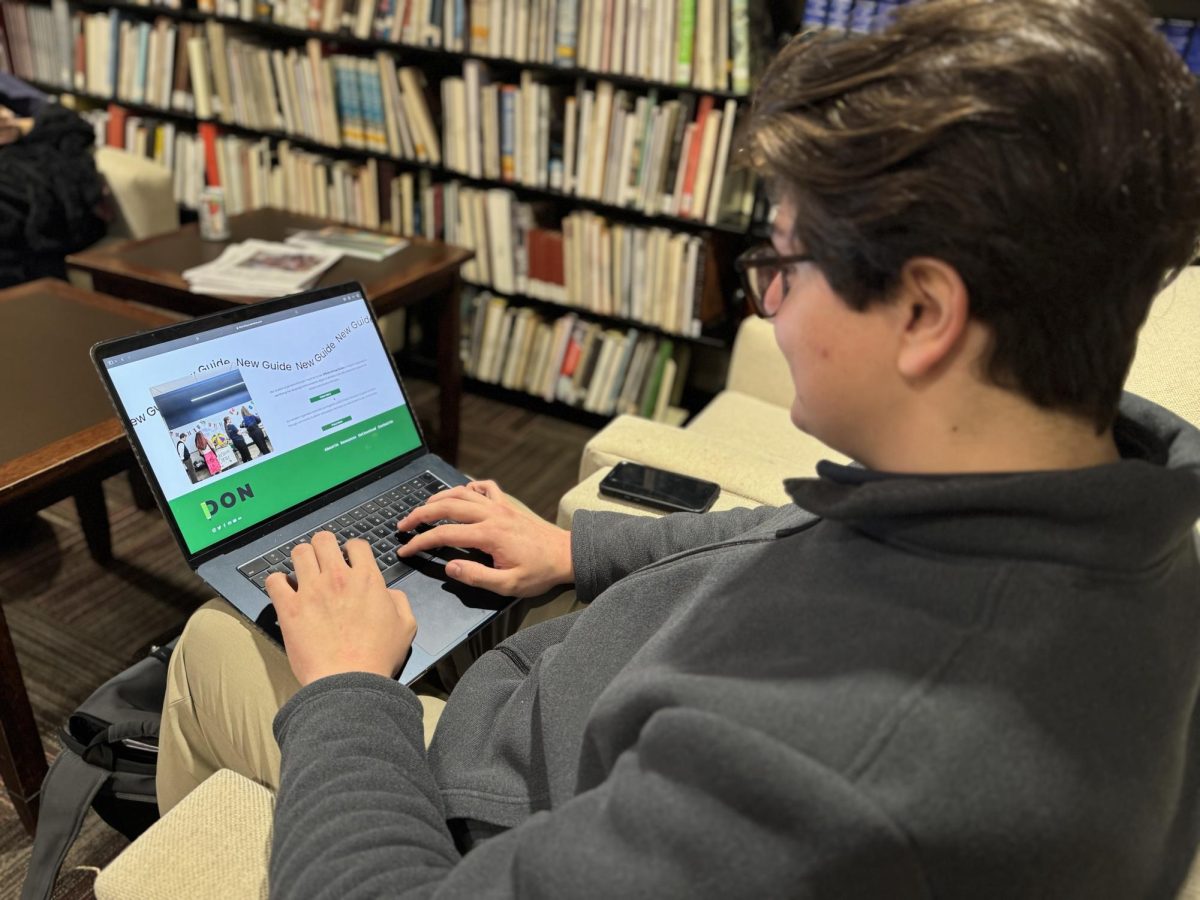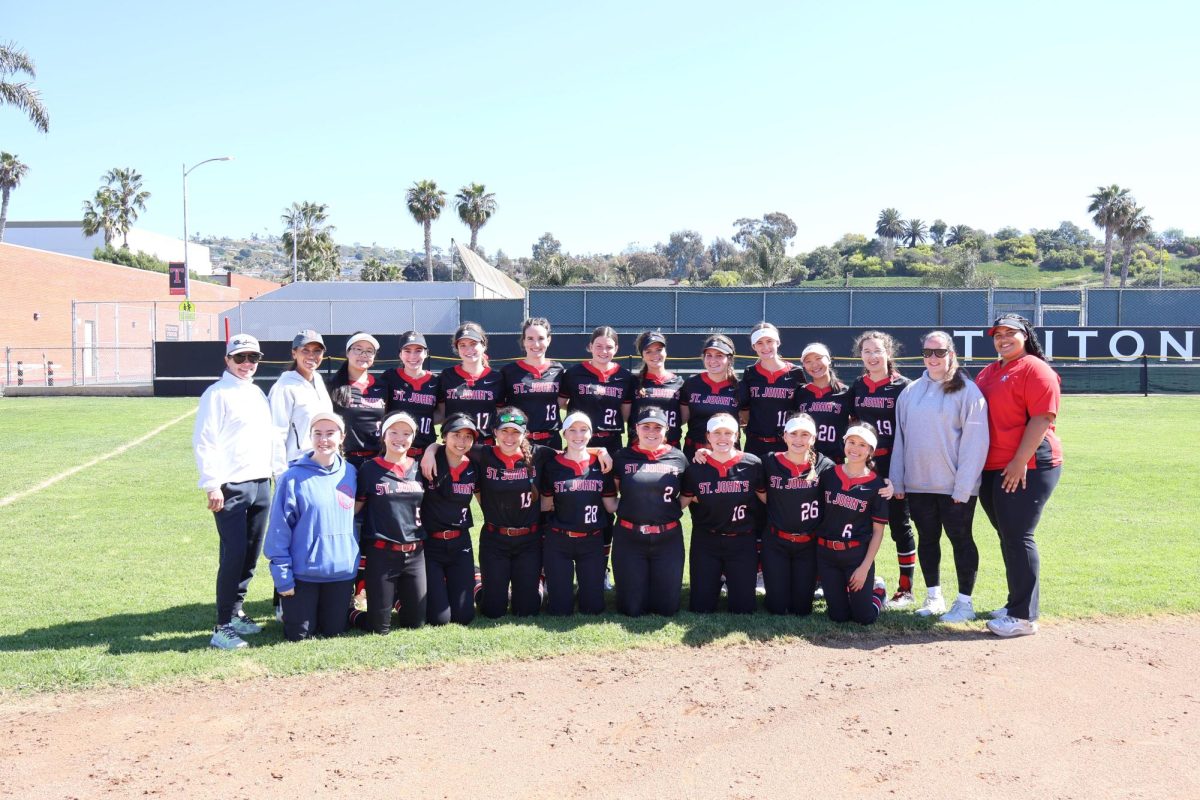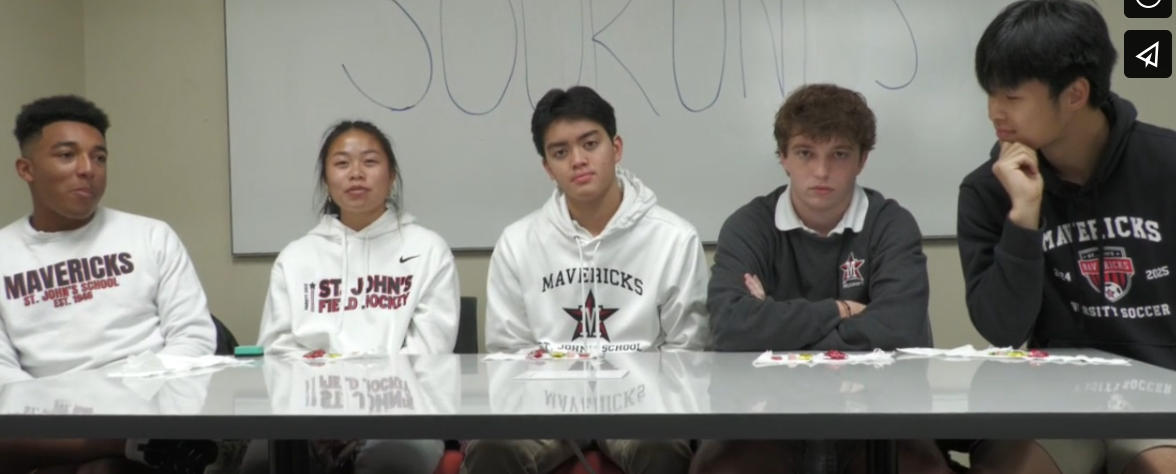Does plastic surgery improve self-esteem? Junior Avi Hayon grappled with this question in her French midterm project before ultimately arguing that it creates a culture of perfectionism and perpetuates societal expectations rather than boosting self-confidence.
For the AP French and Spanish midterms this year, students collaborated in groups of three to answer a popular question in current society, from vegetarian vs. omnivore diets to children’s control over their digital footprints. Incorporating a variety of sources, groups then produced a newscast, infomercial, or debate explaining their views.
“Videos like this are really helpful because every single part of the process is related to different aspects of your French,” Hayon said. “In the research, you worked on reading comprehension, while the speaking helped pronunciation and sentence structure, and the script worked on writing.” She finds that the comprehensive nature of projects provides longer-lasting learning than rote memorization for tests.
The open format of the video also added an artistic element, and Hayon took advantage by dressing up as a plastic surgery patient for her video. For her, the creative freedom of the project, contrasting with the traditional structure of a midterm test like in years past, simply made the midterm more fun.
With World Language classes using a midterm project for the first time in years, instructors were tasked with inventing an engaging project that would challenge students’ language skills without feeling like busywork.
“I came into the meeting, sleepy, one morning at 7:30 with the agenda item to come up with a project,” Upper School Spanish teacher Stephen Kehs said. “In teaching, you tend to go with something you’ve already done before, and there was none of that.”
Willcutt found that, although projects make it easier to balance fun and learning, the challenge comes in creating a fair grading rubric and meaningful checkpoints that build off of each other. In addition, midterms for AP classes are especially important in helping students prepare for the AP test format.
“One of the reasons that I liked having a midterm test in December as opposed to a project is because it was really the one opportunity that I had to give my AP students a practice test before their April mock test and then the May test,” Willcutt said.
To solve this issue, the department decided to model the project after one of the portions of the AP World Language test — the argumentative essay, in which students have 55 minutes to synthesize various sources and choose a position on a given prompt.
In his classes, Kehs found that the project was just as effective, if not more, than a test.
“Two heads think better than one, remember better than one. The dialogue I heard between group mates in the days leading up to producing this video was really valuable,” he said. “And that’s something that wouldn’t have happened with the traditional midterm.”
Moreover, Kehs understands that the course itself should not be designed solely around the AP test. With another semester until the tests in May, he feels that his students have ample time to prepare.
“If you have a strong AP curriculum, your course could look nothing like the AP test until the very end,” he said. “And then your students are still ready because they’re strong readers and they’re strong speakers.”
Besides AP classes, instructors also individually devised or reused projects for their other language classes. Willcutt applied a similar video style for the French III midterm, synthesizing various grammar, vocabulary, and cultural concepts from the semester.
“Students are to imagine that they are serving as a cultural ambassador for the city of Houston,” Willcutt said. “While they check off the grammar and vocabulary points that are assigned, they also will highlight three spots in Houston that exemplify the Houston experience.”
The highlight of the project comes from the collaboration with the Alliance Française de Houston, a nonprofit organization that introduces French and French culture to a diverse group of members. The top three student submissions chosen by Élodie Ricolfi, the director of the Alliance, will be showcased on their official website.
“The Alliance lends more credibility to the project and allows our students to connect with the larger French-speaking community here in Houston,” Willcutt said. “It just creates more connection and more community around the project.”



